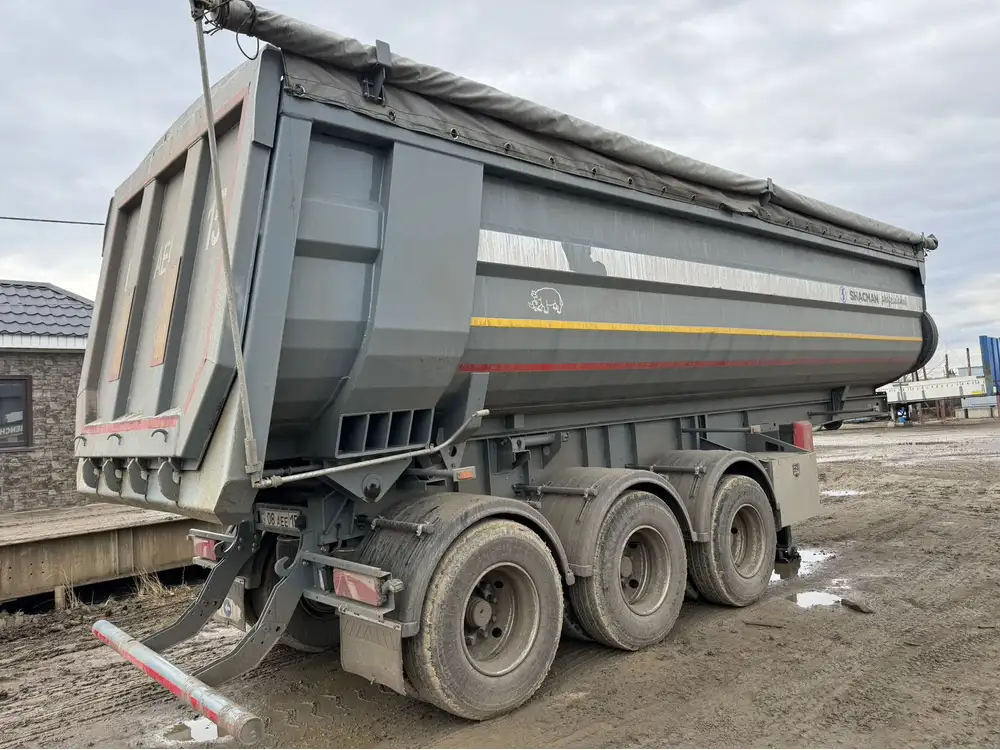When it comes to the longevity and safety of semi-trailers, the roof plays an often-overlooked yet crucial role. Over time, wear and tear, weather conditions, and transport pressures can take their toll, leading to the inevitable question: How much does it cost to replace a 53-foot semi-trailer roof? In this comprehensive guide, we will dissect all the components influencing the cost, explore various roofing materials, and offer insights that can help fleet operators manage their budget effectively.
Key Factors Influencing Roof Replacement Costs
Numerous elements can influence the overall expenses associated with replacing a semi-trailer roof. Understanding these can provide clarity and help in budgeting processes.
| Factor | Description |
|---|---|
| 1. Type of Material | The choice of roofing material significantly affects the cost. Common materials include aluminum, fiberglass, and steel, each with their unique pricing structures. |
| 2. Extent of Damage | If the damage is localized, repairs might be sufficient. Complete roof replacement is necessary for severe damage, which increases costs. |
| 3. Labor Costs | Labor rates vary regionally. Skilled labor is essential for proper installation and can influence total expenses. |
| 4. Structural Integrity | A rotting or corroded trailer frame may require additional repairs before replacing the roof, leading to unforeseen costs. |
| 5. Custom Features | Any additional modifications, such as reinforcements or insulation, will add to the total project cost. |
| 6. Location | Costs may vary based on geographic location, local regulations, and the availability of repair specialists. |
Evaluate these factors when assessing your specific situation for a more accurate cost estimate.
Breakdown of Costs: Material Choices

Aluminum Roofs
Aluminum is a popular choice for semi-trailer roofs due to its lightweight nature and resistance to corrosion. However, this option tends to be on the higher end in terms of initial cost.
- Average Cost: $4,500 – $7,000
- Advantages: Lightweight, corrosion-resistant, and durable.
- Disadvantages: Higher upfront investment compared to other materials.
Steel Roofs
Steel roofs provide excellent strength and durability, making them suitable for heavy loads. However, they can be prone to rust and may require protective treatment, influencing long-term costs.
- Average Cost: $3,500 – $6,000
- Advantages: High strength, usually lower cost compared to aluminum.
- Disadvantages: Heavier, can rust if not properly treated.
Fiberglass Roofs
Fiberglass roofs are less common but offer great weather resistance and energy efficiency. They tend to be more expensive due to their specialized manufacturing process.
- Average Cost: $5,000 – $8,500
- Advantages: Lightweight, highly durable, good insulation.
- Disadvantages: Higher initial cost, potentially less available for custom work.

Comparison Summary
| Material | Price Range | Weight | Durability | Resistance to Elements |
|---|---|---|---|---|
| Aluminum | $4,500 – $7,000 | Light | High | Excellent |
| Steel | $3,500 – $6,000 | Moderate | Very High | Moderate (requires treatment) |
| Fiberglass | $5,000 – $8,500 | Light | High | Excellent |
Additional Costs to Consider
- Disposal Fees: When replacing a roof, the old material must be disposed of according to local regulations, which can involve additional fees.
- Transportation Costs: If using a company that does not operate locally, transportation expenses for both the materials and the labor can be a factor.
- Insurance and Warranty Considerations: Depending on coverage, your insurance may partially cover the cost of roof replacement, particularly if damage was caused by an accident.
Detailed Steps of Roof Replacement
Understanding the process ensures transparency in service and helps you anticipate any complications that could arise.
- Assessment of Current Condition: Thorough inspection of the existing roof for leaks, rust, and structural integrity.
- Choosing Materials: Based on the assessment findings, selecting a roofing material that fits your budget and requirements.
- Material Procurement: Acquisition of roofing materials. This step is influenced by current market rates and material availability.
- Preparation of Trailer: Safely preparing the trailer involves cleaning, removing the existing roof, and reinforcing any weak spots in the structure.
- Installation of New Roof: Skilled technicians will carefully install the new roof following manufacturer specifications and best practices.
- Final Inspection: Post-installation inspection ensures the integrity of the new roof and identifies any immediate concerns.

Maintaining Your Semi-Trailer Roof
Preventive maintenance can extend the life of your trailer roof, ultimately saving costs on repairs and replacements. Implementing the following tips can help in maintaining your trailer:
- Regular Inspections: Conduct routine inspections for signs of wear, rust, and damage.
- Sealing and Coating: Apply protective sealants or coatings to prevent moisture infiltration and elemental wear.
- Cleaning Debris: Regularly clear off debris, dirt, and grime that can cause corrosion and other damage over time.
- Protective Measures: During extreme weather conditions, consider additional protective coverings or parking the trailer in a sheltered area.
Signs that Indicate Roof Replacement
Being proactive is key to managing the lifespan of your semi-trailer. Recognizing early indicators of roof issues can lead to timely interventions.
- Visible Damage: Cracks, splits, or holes in the roof’s surface are major red flags.
- Water Leaks: If you notice water drips during rain, it’s time to inspect for underlying issues.
- Uneven Roof Surface: Bumps or uneven areas can signify structural problems.
- Rust or Corrosion: Persistent rusting can degrade materials and warrant immediate attention.
Conclusion
Replacing the roof of a 53-foot semi-trailer is a significant investment. However, knowing how much it costs, understanding the elements affecting those costs, and maintaining the roof can ensure longevity and reliability in your fleet’s performance. By selecting the right materials, employing skilled labor, and practicing regular maintenance, you can protect your investment efficiently. Our industry expertise allows us to navigate the nuances involved, ensuring you get the best advice and service tailored to your needs.
Ready to explore your semi-trailer options further? Contact us today to discuss your needs and get tailored solutions that suit your budget and fleet requirements.



